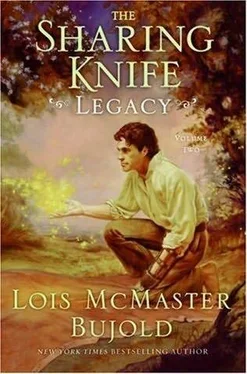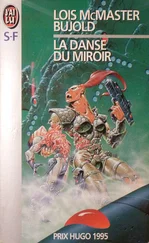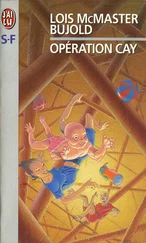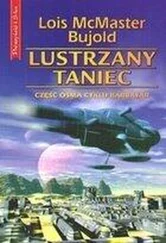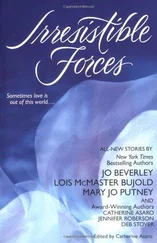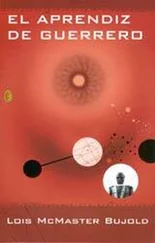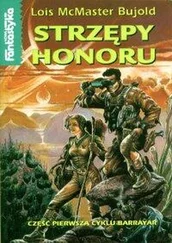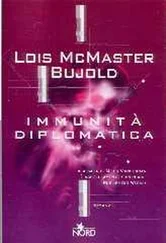“That was a fool thing to do for a ground-ripped man, to go and expose yourself to more blight,” Utau scolded. “You should know better, Dag.”
“Yeah,” sighed Dag, dutifully lying flat. “Well, we’re all home now.”
Sarri and Utau took themselves out with an offer of dinner later, which Fawn gratefully accepted. She fussed briefly over Dag, kissed him on the forehead, and left him not so much dozing as glazed while she went to deal with unpacking their gear. She glanced up at the lately contested awning of little Tent Bluefield as she began sorting.
Home again.
Was it?
Fawn brought Dag breakfast in bed the next morning. So it was only plunkin, tea, and concern; the concern, at least, he thought delicious. Though he had no appetite, he let her coax him into eating, and then bustle about getting him propped up comfortably with a nice view out the tent flap at the lakeshore. As the sun climbed he could watch her down on the dock scrubbing their clothes. From time to time she waved up at him, and he waved back. In due course, she shouldered the wet load and climbed up out of sight somewhere, likely to hang it all out to dry.
He was still staring out in benign lassitude when a brisk hand slapped the tent side, and Hoharie ducked in. “There you are. Saun told me you’d made it back,” she greeted him.
“Ah, Hoharie. Yeah, yesterday afternoon.”
“I also heard you weren’t doing so well.”
“I’ve been worse.”
Hoharie was back in her summer shift, out of riding gear; indeed, she’d made a questionable-looking patroller. She settled down on her knees and folded her legs under herself, looking Dag over critically.
“How’s the leg, after all that abuse?”
“Still healing. Slowly. No sign of infection.”
“That’s a blessing in a deep puncture, although after all that ground reinforcement I wouldn’t expect infection. And the arm?”
He shifted it. “Still very weak.” He hadn’t even bothered with his arm harness yet this morning, though Fawn had cajoled him into clean trousers and shirt. “No worse.”
“Should be better by now. Come on, open up.”
Dag sighed and eased open his ground. It no longer gave him sensations akin to pain to do so; the discomfort was more subtle now, diffuse and lingering.
Horarie frowned. “What did you do with all that ground reinforcement you took on last week over in Raintree? It’s barely there.”
“It helped. But we crossed some more blight on the way back.”
“Not smart.” Her eyes narrowed. “What’s your groundsense range right now?”
“Good question. I haven’t…” He spread his senses. He hardly needed groundsense to detect Mari’s noisy grandchildren, shouting all over the campsite. The half-closed adults were subtler smudges. Fawn was a bright spark in the walnut grove, a hundred paces off. Beyond that…nothing. “Very limited.” Shockingly so. “Haven’t been this weak since I lost my real hand.”
“Well, if you want an answer to, How am I recovering? there’s your test. No patrolling for you for a while, Captain. Not till your range is back to its usual.”
Dag waved this away. “I’m not arguin’.”
“That tells a tale right there.” Hoharie’s fingers touched his thigh, his arm, his side; he could feel her keen regard as a passing pressure through his aches. “After my story and Saun’s, Fairbolt reckoned he’d be putting your peg back in the sick box. He wanted me to tell him for how long.”
“So? How long?”
“Longer than Utau, anyway.”
“Fairbolt won’t be happy about that.”
“Well, we’ve talked about that. About you. You did rather more in that Bonemarsh groundlock than just take hurt, you know.”
Something in her tone brought him up, if not to full alertness, which eluded him still, then to less vague attention. He let his ground ease closed again. Hoharie sat back on the woven mat beside the bedroll and wrapped her arms around her knees, regarding him coolly.
“You’ve been patrolling for a long time,” she observed.
“Upwards of forty years. So? Cattagus walked for almost seventy. My grandfather, longer than that. It’s a life.”
“Ever think of another? Something more settled?”
“Not lately.” Or at least, not until this summer. He wasn’t about to try to describe how confused he’d become about his life since Glassforge.
“Anyone ever suggest medicine maker?”
“Yes, you, but you weren’t thinking it through.”
“I remember you complained about being too old to be an apprentice. May I point out, yours could be about the shortest apprenticeship on record? You already know all the herb-lore, from decades of patrol gathering. You know field aid on the practical side—possibly even more than I do. Your ground-matching skills are astonishing, as Saun has lived to testify to anyone who will listen.”
“Saun, you may have noticed, is a bit of an enthusiast. I wouldn’t take him too seriously, Hoharie.”
She shook her head. “I saw you do things with ground projection and manipulation, inside that groundlock, that I can still barely wrap my mind around. I examined Artin, after it was all over. You not only could do it, you could be good, Dag. A lot of people can patrol. Not near as many can do this level of making, fewer still such direct groundwork. I know—I scout for apprentices every year.”
“Be reasonable, Hoharie. Groundsense or no, a medicine maker needs two clever hands for, well, all sorts of tasks. You wouldn’t want me sewing up your torn trousers, let alone your torn skin. And the list goes on.”
“Indeed it does.” She smiled and leaned forward. “But—patrollers work in partnered pairs all the time. You’re used to it. And I get, from time to time, a youngster mad for medicine-making, and with clever hands, but a bit lacking on the groundsense side. You get along well with youngsters, even if you do scare them at first. I’m thinking—what about pairing you up with someone like that?”
Dag blinked. Then blinked again. Spark? She had the cleverest hands of anyone he’d ever met, and, absent gods knew, the wits and nerve for the task. His imagination and heart were both suddenly racing, tossing up pictures of the possibilities. They could work together right here at Hickory Lake, or at Bearsford Camp. Honorable, necessary, respected work, to win her a place here in her own right. He could be by her side every day. And every night. And once she was trained, they might do more…would Fawn like the notion? He would ask her at once. He grinned at Hoharie, and she brightened.
“I see you get the idea,” she said in a tone of satisfaction. “I’m so glad! As you might guess, I have someone in mind.”
“Yes.”
“Oh, did Othan talk to you?”
“Beg pardon?”
“It’s his younger brother, Osho. He’s not quite ready for it yet, mind, but neither are you. But if I knew he’d be pairing with you, I could admit him to training pretty soon.”
“Wait, what? No! I was thinking of Fawn.”
It was Hoharie’s turn to rock back, blinking. “But Dag—even if she’s still—she has no groundsense at all! A farmer can’t be a medicine maker. Or any kind of a maker.”
“Farmers are, in their own way, all the time. Midwives, bonesetters.”
“Certainly, but they can’t use our ways. I’m sure their skills are valuable, and of course better than nothing, but they just can’t.”
“I’d do that part. You said.”
“Dag…the sick and the hurt are vulnerable and touchy. I’m afraid a lot of folks wouldn’t trust or accept her. It would be one strange thing too many. There’s also the problem of her ground. I like Fawn, but having her ground always open around delicate groundwork, maybe distracting or interfering…no.”
Читать дальше
